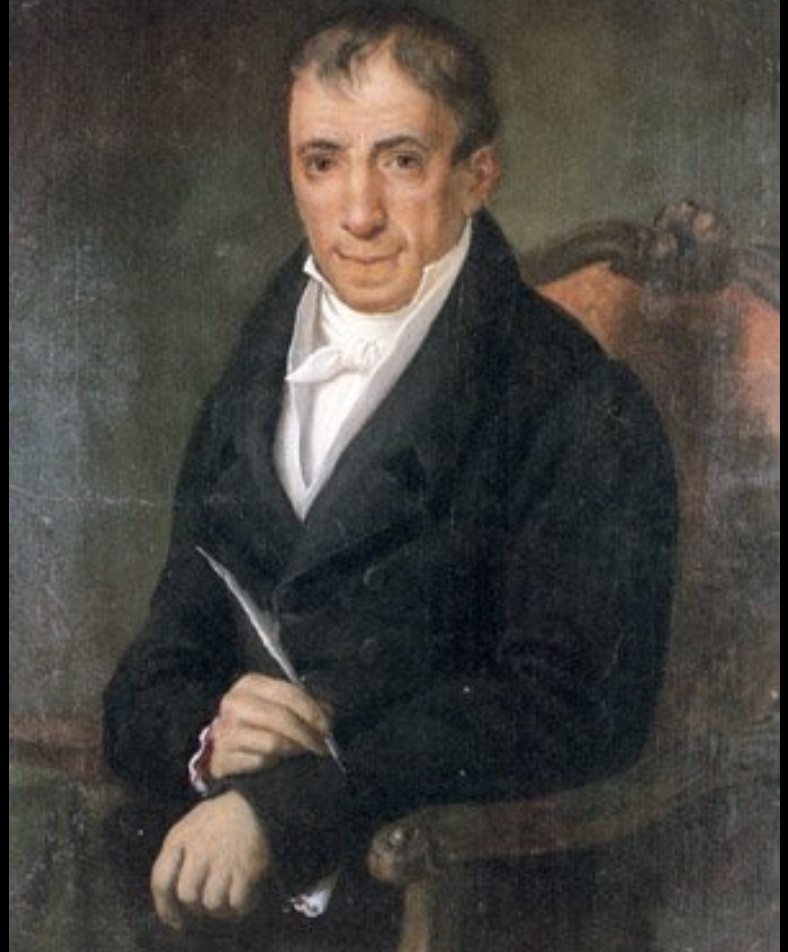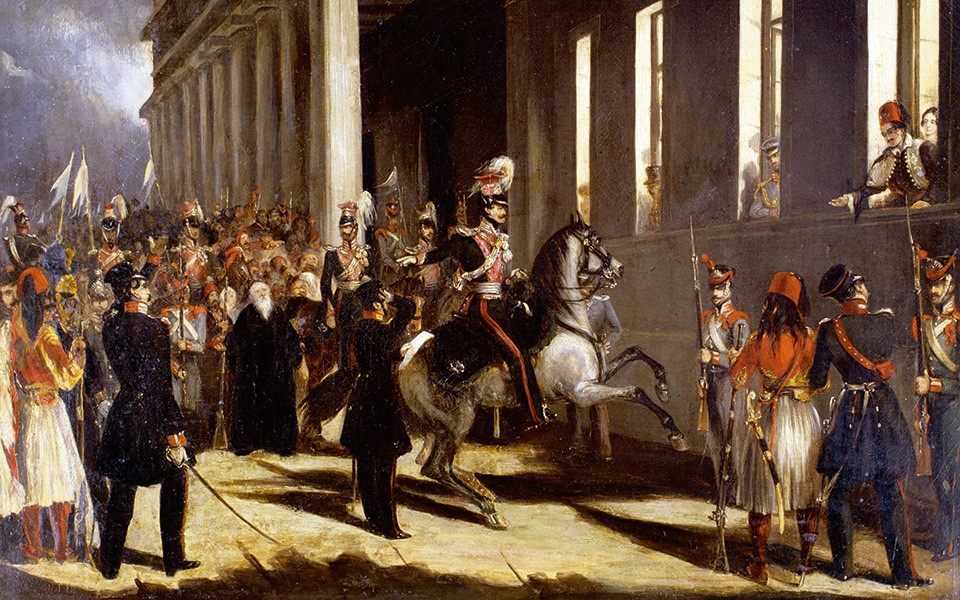On 17 October 1864, 160 years ago today, King George I of Greece signed the 1864 Constitution into law, establishing a monarchic democracy. The Constitution represents a major development in the country’s constitutional history on multiple counts.
As it states on the Hellenic Parliament website:
‘The most important feature of Greece’s new foundational charter was that it restored the principle of popular sovereignty included in the Troezen Constitution of 1827 and was thus governed by the principle of democracy not of monarchy. This means it recognized the Greek people as the source and bearer of state power, not the monarch.’
Intent on delving a little deeper into the 1864 Constitution, we consult Messrs. Paschalis M. Kitromilides, Professor of Political Science at the University of Athens and a member of the Academy of Athens, and Kostas C. Chrysogonos, Professor of Constitutional Law at the Aristotle University of Thessaloniki.
In TO VIMA of 22 November 2014, Professor Kitromilides spoke of ‘democratic liberalism’s most important achievement in 19th-century Greek political life’, while in TO VIMA of 28 December 2013, Professor Chrysogonos writes about ‘a failed attempt to place restrictions on royal power.’
Kostas C. Chrysogonos
How we got to the 1864 Constitution
‘The 1864 Constitution was the culmination of a process of exercising constitutional power that began with the “revolution” (essentially, a military coup) of October 1862 and the deposing of King Othon. The king had continued to exercise a covert authoritarianism even after the adoption of the Constitution of 1844 through the appointment of “court governments” and the use of force and fraudulent practices to influence the results of elections, and it was this that led to his being overthrown.
‘The revolution did not seek to abolish the monarchy, but rather to install a new royal family in an effort to ensure the smooth running of the state.
‘The search for a new king was tasked to British diplomacy, which chose Prince George of Denmark; Greece simply ratified the decision in March 1863 with a vote of the Second National (Constituent) Assembly elected at the end of the previous year.
‘Given that largely conservative views prevailed in the National Assembly, no solution was found to the fundamental issue of introducing the parliamentary system—or, rather, of placing limits on the extent to which the monarch could intervene in the political life of the nation.
‘Articles 31 and 37 of the new Constitution gave the king the unrestricted power to appoint and dismiss “his” ministers at will (as though they were nothing more than personal assistants) and to dissolve Parliament without so much as requiring the government to request a vote of confidence from the latter. The king also retained command of the armed forces and the power both to declare war and conclude peace treaties (Article 25).
Court Governments
‘A noteworthy innovation was the explicit enshrinement of two key principles—of direct, universal and secret suffrage (Article 66) and of national sovereignty (Article 21)—, while the Senate was also abolished. It was also a democratic Constitution from the point of view of the institution of constitutional power, since this was the Second National Assembly; the new king had no meaningful role to play.
‘It is of a part that no role was foreseen for the King, not even in the procedure laid down in Article 107 for revising the Constitution, which will henceforth only be permitted under the strictest of conditions (with revisions limited to specific non-fundamental provisions, and only if the need for their revision is established by two separate parliaments in consecutive parliamentary terms, in which case the second Parliament must be immediately dissolved and the decision to proceed taken by the new Constituent Assembly). Under these conditions, the Greek state was now considered a “monarchic democracy” rather than the “constitutional monarchy” of the 1844 Constitution.
‘However, all this barely touched on the essence of the country’s political and constitutional problem, which was, as mentioned above, the appointment of governments chosen by the Palace, often from the parliamentary minority.
‘And George I would do just that at the start of his reign and for more than a decade into it. On occasions, when a Parliament was dissolved, the new elections these governments were responsible for staging would be conducted with violence and fraud, as in 1868 and 1874 in particular, or with dissenting MPs brought into line by various unsavory methods to ensure a pro-government majority in the new Parliament.
The principle of declared confidence
‘These tactics gave rise to growing social discontent which reached a head in the mid-1870s and forced George into retreat. Thus it was that the king proclaimed the principle of “declared confidence” in his speech at the opening of Parliament in August 1875 (meaning that henceforth, he would consider “the declared confidence of a majority of the nation’s representatives to be an indispensable qualification for anyone called upon… to govern the country”).
‘However, the principle of declared confidence was not enshrined as a constitutional rule (i.e. as a constitutional custom amending Articles 31 and 37 of the 1864 Constitution), but remained a convention whose exact content would be disputed for decades to come.
‘Another important development in Greek constitutional history, which took place toward the end of the 19th century, was the establishment in Greek law of judicial control over the constitutional validity of laws. This took place through the implementation of the letter of Article 107 of the 1864 Constitution and the difference it gave rise to in the formal validity of the Constitution versus the law.
The Goudi Movement
‘A new military movement which erupted in Goudi in August 1909 would mark the beginning of the end for the 1864 Constitution. Within a short time, the old parties will have collapsed, preparing the way for Eleftherios Venizelos’s rise to power. A further constitutional amendment would take place in 1910-1911 with these developments as a backdrop.
‘This “revision” of the Constitution was actually made in violation of the procedural requirements laid out in Article 107 of the 1864 Constitution: thus, the need for the amendment was established by a single Parliament (in February 1910) rather than two consecutive Parliaments, while the revision was not carried out by the First Constituent Assembly elected in August 1910, but rather by the Second Revisionary Parliament when the First was dissolved after just two months, following new elections in November of the same year.
‘Still, the new 1911 Constitution did not explicitly establish the principle of “declared confidence”, either, and could not therefore prevent King Constantine from proceeding with the unconstitutional and treasonous acts that would lead to national division in 1915.’
Paschalis Kitromilides
Paschalis Kitromilides describes the 1864 Constitution ‘as a monument to political discourse and political thought’ that ‘transcends the boundaries of Constitutional Law as a discipline and certainly cannot be evaluated exclusively in the context of a formalistic legal approach.’
(…)
‘It also represents a milestone in the course of Greek political thought and the political ethics of Greek society. What is more, from a broader sociological perspective, it would not be an exaggeration to say it represents a major turning point in the evolution of the Greek political mentality.
(…)
‘As far as Constitutional Law is concerned, I would like to point out that both Aristovoulos Manesis, and more recently Nikos Alivizatos, have argued most convincingly that the significance of the 1864 lies in the following: its establishing of the democratic principle, the establishment of a monarchic democracy in Greece in place of the earlier constitutional monarchy, the single-chamber system of government, and a more focused awareness of the need to protect individual rights.

Adamantios Korais
Through the lens of Political Science
‘So what does political science have to add to the above analysis?
‘Certain methodological clarifications are required before we can answer that question. If the 1864 Constitution is seen from a history of political thought perspective as a codification of values, ideological traditions and a normative acquis produced by the historical experience of a given society, then it can be examined using the methodology of the history of political theory.
‘This methodology seeks to regain the historicity and internal logic of writings on political thought through the study of the contexts and precedents that constitute the reference points to which those syntheses and crystallizations of political ideas, which constitute milestones and turning points in the development of the political thought of a society, explicitly or implicitly correspond.
‘It is conventional to view the 1864 Constitution as a more democratic evolution of the Constitution of the constitutional monarchy of 1844. Like all conventional views, this contains a significant element of truth, but it does not tell us anything meaningful which we did not already know; rather, it restricts our level of understanding to the known and somewhat hackneyed.
‘It would be historically more appropriate to view the 1864 Constitution as a step up from the Constitution of 1844, to see it as having transcended and above all abandoned the spirit of that Constitution, which still echoed the spirit of the Restoration on the eve of the democratic revolutions that would send shock waves through Europe in 1848.
Liberal democratic constitutionalism
‘The 1864 Constitution reconnects with the tradition of liberal democratic constitutionalism that manifested itself during the Greek Revolution of 1821. This earlier liberal democratic tradition not only permeated the constitutions of the 1820s, it was also interpreted in the political theory of the same period. One need only recall the work of Anastasios Polyzoidis, A general theory pertaining to the various administrative systems and most especially to parliamentarism, which was printed in Missolonghi during the siege of that city in 1825.
‘And let us also call to mind Adamantios Korais’ Notes on the Provisional Constitution of Greece, in which Greece’s leading exponent of the Enlightenment calls for more effective safeguards for the principle of equality and guarantees for the democratic nature of the Constitution.
‘This earlier liberal democratic tradition had been sidelined by the centralized and authoritarian system of government imposed by the absolute monarchy. Moreover, the liberal democratic tradition had been delegitimized, as a threat to the nation’s unity, in the context of the increasingly hardline ideology in the period after the revolutions of 1830. It was this legacy which the 1864 Constitution dragged back from oblivion, thanks in large part to the representatives from the Ionian islands, where it had been kept alive by radicalism.
‘But beyond this reconnection with the democratic liberalism of the revolutionary decade of the 1820s, the 1864 Constitution can also be seen as a response to another challenge. This was an issue that arose from the critique of constitutionalism that had arisen in response to oligarchical elements invoking the Constitution to conceal and perpetuate their own personal interests.
The manipulation of constitutionalism
‘Demetrios Bernardakis would criticize these cliques and their manipulation of constitutionalism a few years after the coming into force of the 1864 Constitution.
‘Let us consider his critique with due care and seriousness, no matter how much ideological discomfort it may cause us. There is no doubt that Bernardakis’ words are challenging for the democratic conscience.
‘A formidable Classical scholar and author of tragedies inspired by the longue durée of Greek history, Bernardakis was no friend of democracy: a monarchist, he was hostile to constitutions and the values of the Enlightenment and an adherent of strong centralized leadership which ruled in the interests of society as a whole.
‘In his opinion, only a political system of this type would save Greece, which would otherwise remain at the mercy of powerful and unchecked political passions that would lead with mathematical certainty to its destruction.
‘Bernardakis is of the opinion that the Greeks are “a nation by nature and by habit excitable, imaginative, unrestrained, and raised and educated to this day in a poor and beggarly manner and in such a way that it cannot live without flattery, without incense, without an ill-founded arrogance and sense of superiority.”
‘He also notes the following: “The end of the Revolution marked the start in Greece of that drawn-out political comedy whose end only God knows whether we will be blessed to witness. While a constitutional state was established in the name of the Greek nation, it was actually an awful oligarchy that put down roots and established itself on strong foundations: the feudal arbitrariness of the centuries of Turkish rule with a thin layer of constitutional mythology imported fresh still from the West on top.”
‘Bernardakis backs up his opinions with arguments and examples from the political realities of his era, which render his diatribe persuasive, despite his prickly idiosyncrasies.
Bernardakis’ arguments
‘He not only denounces the hypocrisy of the oligarchic elements that expressed themselves “in a riot of discord and party-political passions which begin and end in unbridled and shameless self-interest.”
‘He also refers to the pernicious role played by the “pseudo-aristocracy of the Kingdom of Greece, from the prime minister down to the lowliest clerk”, to the problems of education, and higher education in particular, which has, in his opinion, become nothing more than a “home for layabouts.” He even points out the Law School’s contribution in turning out the hordes of orators and demagogues who exacerbate the nation’s political passions.
‘According to Demetrios Bernardakis, these products of constitutionalism, as he saw them, were already manifest in the era when the principle of declared confidence was introduced.
‘This skepticism and pessimism, which are genuine expressions of another European ideological tradition opposed to democratic liberalism and traceable back to Edmund Burke, were one of the many challenges facing Greek political thought as the institution of monarchic democracy was being drawn up.
‘In the end, the model associated with the stance adopted by Demetrios Bernardakis was not followed. The Enlightenment model of constitutionalism and freedoms was chosen instead. And it did not prove badly suited to governing Greece, at least at first. This may have been due to the way in which the institutions of constitutionalism were adapted to the structures of Greek society, in particular in the service of the sort of clientelistic relations and dependencies which, unfortunately, remain a feature of political life in Greece to this day.
‘However, the country would follow a series of difficult paths during the 20th century, with numerous ruptures and discontinuities through until 1974. Even in the 21st century, the politics of the absurd that has come to the surface in public life since 2012, and the infinite hypocrisy of the preachers of modernization, remind us that Demetrios Bernardakis’ warnings have lost neither their acuity nor their timeliness as regards the political life of Greece.’



